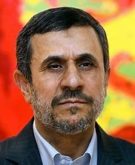Iranhumanrights.org – In an interview with the International Campaign for Human Rights in Iran, Iranian Nobel Laureate Shirin Ebadi held President Hassan Rouhani directly responsible for “every Intelligence Ministry violation” and criticized his failure to uphold the Constitution.
“I warn Mr. Rouhani and hold him responsible for the unlawful actions taking place in the Intelligence Ministry because the ministry is part of his cabinet,” said Ebadi on December 10, 2016, Human Rights Day.
“Mr. Rouhani should at least say he has no authority over the Intelligence Ministry,” added Ebadi, who was awarded the Nobel Peace Prize in 2003. “But he hasn’t said it and until he clearly does, he’s responsible for every Intelligence Ministry violation, including the imprisonment of people based on false and biased Intelligence Ministry reports.”
The Intelligence Ministry is directly involved in imposing illegal and arbitrary restrictions on the activities of independent and non-governmental organizations, activists and dissidents. In addition to directing and aiding hundreds of cases of arbitrary arrests every year and laying false charges against the defendants, the ministry also illegally interferes with judicial processes.
By tradition rather than constitutional procedure, the president’s pick for intelligence minister is introduced to Parliament for approval after direct consultation with Supreme Leader Ali Khamenei. Every president of the Islamic Republic since reformist President Mohammad Khatami (1997-2005) has tried to exert some measure of control over the ministry, however, Rouhani, who was elected in 2013, has chosen not to interfere in its activities.
Forced into exile in 2009 due to ongoing threats of imprisonment, Ebadi, a prominent human rights lawyer who headed the now banned Defenders of Human Rights Center (DHRC), described some of her own experiences with an agent of the Intelligence Ministry who identified himself as Mahmoudi.
“In my latest book (Until We Are Free), I have written extensively about Mahmoudi and the things he did against me personally,” she said. “In 2009 I went to a three-day seminar in Spain and never came back. To silence me, Mr. Mahmoudi raided my sister’s home without a warrant and arrested her. Of course, I cannot close my eyes to the truth just to gain my relatives’ freedom. My sister developed heart disease in prison and they let her go after a while.”
Ebadi continued: “Mr. Mahmoudi also entrapped my husband with the help of a woman who had been tricked into collaborating with the Intelligence Ministry. Mr. Mahmoudi and two other agents filmed them with secret cameras and arrested them for having illegitimate relations. My husband was sentenced to stoning, but was offered clemency if he spoke against me in a television interview, which was aired in two parts.”
Ebadi also discussed the case of imprisoned prominent human rights lawyer Narges Mohammadi, also a member of the DHRC.
“In 2009, pressure on the DHRC intensified and Intelligence Ministry agents began to put together a case against the center and its members,” she said. “The lead agent was a person who introduced himself as ‘Mahmoudi’… and now this same person is again the lead investigator in the cases against DHRC members Narges Mohammadi and Abdolfattah Soltani. That’s why they received such heavy sentences.”
In September 2016, the Appeals Court upheld a 16-year prison sentence against DHRC Spokesperson and Vice-President Narges Mohammadi for “membership in the [now banned] Step by Step to Stop the Death Penalty,” “assembly and collusion against national security” and “propaganda against the state.” She will become eligible for release after serving 10 years in prison.
The ruling prompted 15 members of Iran’s Parliament to take the unprecedented step of publicly defending a political dissident and calling on the Judiciary to review her case and show “Islamic mercy.”
Soltani, a well-known human rights lawyer and member of the DHRC’s Oversight Council, has served more than half of a 13-year prison sentence for “being awarded the [2009] Nuremberg International Human Rights Award,” “giving interviews to the media about his clients’ cases,” and “co-founding the DHRC” with Ebadi. He is eligible for conditional release based on Article 134 of Iran’s Islamic Penal Code, which limits a prison term to the heaviest sentence of the most serious charge in cases of multiple charges.
Ebadi also criticized Rouhani for failing to carry out his presidential campaign promise of upholding the Constitution.
“It’s very sad and shocking that Mr. Rouhani came to power with promises of civil liberties and upholding the rule of law and yet he has not even sacked low-level Intelligence Ministry staff who have committed abuses, including this Mr. Mahmoudi who is still going about his business,” she said.
“Mr. Rouhani’s record in regards to the rule of law and respecting freedoms protected by the Constitution is very poor,” she told the Campaign. “If Mr. Rouhani had done his job, there would have been no need for the MPs to write to the Judiciary asking for a review of Mohammadi’s heavy sentence.”
Ebadi continued: “I have no complaint against the Judiciary because it clearly lost its independence years ago and became an extension of the Intelligence Ministry. But I am surprised by the actions of Mr. Rouhani, who’s a lawyer and came to power with the promise of upholding the rule of law… If he was interested in the rule of law, he would have replaced Intelligence Ministry staff with competent people who believe in acting within the law and would have withdrawn the case against Mrs. Mohammadi and fought for her acquittal. Mr. Rouhani has a lot of authority, but he doesn’t want to use it.”
 Shabtabnews In this dark night, I have lost my way – Arise from a corner, oh you the star of guidance.
Shabtabnews In this dark night, I have lost my way – Arise from a corner, oh you the star of guidance.


